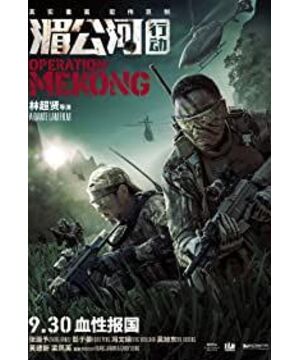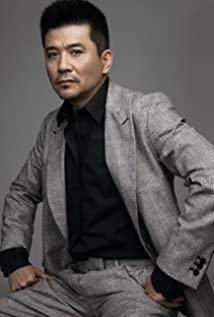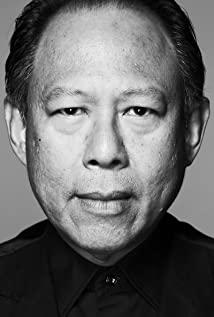This "October 1" theater line was strongly abused by Director Guo's "Jueji", and Director Wang's "Ace Amusing Ace" also followed suit. Even Zhang Jiajia, who had originally hoped, was also in "From Your World". Offline in Passing by.
Little Sister Xiao Sha never imagined that the golden schedule of "October 1" would fall to such a heart-pounding level. However, what surprised me even more was that what saved me from this slump was actually a movie with the main theme - "Operation Mekong".
Objectively speaking, we have had some excellent military and police theme movies. For example, "Rush Out of Amazon", which expresses the perseverance of Chinese soldiers -
"Purple Sun", which accuses the cruelty of war——
Reflecting on the injustice of the Civil War "Assembly"——
However, it is the first time for a movie with a main theme like "Operation Mekong" that is full of vigour. I have to sigh, amazing, my country!
The lively film of the plot is
adapted from the real case "Mekong River Massacre". It tells how the police in China, in a foreign battlefield, under the conditions of uncertain weather, location, and people, are in the open and dark in China, Laos, Myanmar, and Thailand. The story of arresting the big drug lord Nuo Kang who brutally murdered our crew members and avenging the victims of our country.
From the very beginning, Peng Yuyan's undercover Qihu, who tortured the informant to extract a confession, lifted my spirits.
In the face of the informant who refused to cooperate, he didn't say much, and neatly cut through the other party's femoral vein - he died if he didn't confess.
It's completely different from our traditional police and gangster films, which are burning their eyebrows. The police are still trying their best to lure the prisoners in order to show our superior socialist system.
Instead, it is "exceptional circumstances, extraordinary means", to figure out the whereabouts of the criminals, and then rescue the informants.
This unprecedented setting of vivid characters who walk in the gray area enables the film to maximize the credibility of its story and the sense of contextualization while ensuring political correctness.
As Qihoo himself said, "This is the Golden Triangle", conventional means are useless here. It is precisely because he has been in such a dangerous situation for a long time that he is always trapped in hatred.
The scene of arresting the drug dealer who once killed his girlfriend was impressive -
Qihoo pinned the drug dealer to the ground, pointed a gun at his neck, trembling all over.
I thought he would be like the cops in other cop movies, gritted his teeth and moved the pistol away, roaring to empty a magazine in the drug dealer's ear. Unexpectedly, he really pulled the trigger!
Although the film has softened this scene with humanistic care, I still haven't recovered for a long time when I look at the little brains splashed on the leaves. Such a blunt expression of hatred is rarely seen even in the main theme movies of American emperors.
And this plot is by no means a gimmick set up to grab attention with violence. It clarifies the indirect harm of drugs, and at the same time, in order to cover the evacuation of the teammates of Nuokang, the leader of the drug dealer, Qihoo drove a boat to hit the black soldiers in Thailand
. , he must not be able to escape the questioning and imprisonment of him after the action. But if he really let him suppress his emotions at that time and spare the drug dealer's life, it would be so cruel. Therefore, the final sacrifice may be the best destination for him.
The police are also human. While they are paying the price for our rights, who can advocate for their voices?
Not only the external events are violent, but the inner emotions and motivations of the film are also fierce. The fierceness of "Mekong Action" makes it so convincing for the first time that the "sacrificing one's life" in our main theme movie is so persuasive. In addition to the plot, "Operation Mekong" also changed the traditional weakness of such films in terms of audiovisual
. At the beginning of the film, only a few concise and restrained shots were given to the director of public security, played by Chen Baoguo. After he explained the background of the story of "Nuo Kang must be captured alive", the video was immediately transferred to the action team in a foreign land and entered the scene. Adrenaline rush mode. The members of the group perform their duties and show their talents: the listeners in our main theme movie finally use drones and tablet computers; the blasters use new mine-laying robots in addition to traditional explosives; and The elusive police dog who showed his skills when breaking through the minefield.
The film truly shows the audience the sense of technology and fluency of the special operations team cooperated. It has changed the feeling that our policeman used a 92 automatic or a 05 runner to go around the world, and it looks very tall. Its visual effect is just one word - "tough".
What's more fierce is that the film's detailed and realistic performance of the large-scale shootout that eventually captured Nuoka. Director Lin Chaoxian, who plays with the theme of police and bandits, is naturally at ease in terms of presenting the "Golden Triangle" with diverse and chaotic weapon systems.
Because in this operation, our country's police officers are going to fight in the territory of other countries, so they cannot be equipped with their own standard weapons and can only temporarily buy them in foreign countries. This makes the police firearms in the film have the characteristics of a mixture of American-made and Soviet-made weapons and equipment in the "Golden Triangle" area.
And Lin Dao's expression of this detail has been so subtle that the firing sounds of different guns have different levels. It is a great benefit for the military, police and firearms enthusiasts.
In the dazzling rain of bullets, the gold AK used by the villain leader Nuokang is even more eye-catching. The texture of gold and the characteristics of AK are very accurate reminders of his fierce identity as a soil emperor.
It also makes the image deduct the sinister theme of me as a "normal user" and attacking the "paying user" away from home.
The ferocity of values In the
end, whether it is the plot or the image, what they all point to is the ferocity of the values of "Operation Mekong".
Unlike the news that we "strongly condemn" every time we have friction with other countries, the value of this film is straightforward, which is "dare to touch me and try".
This is different from the films that we used to talk about, or make a statement of self-advocacy for self-entertainment. The film expresses very clearly the idea of "no matter who the perpetrator is, he must pay the price".
This can be seen from the police action team's efforts to rescue the seriously injured Nuo Kang at all costs - we save you so that you can accept our trial.
In reality, the arrest of Nuo Kang was driven by our repeated urging from Myanmar to drive him to Laos, which is also a socialist country. After cooperating with Laos to arrest him, he was handed over to my country for trial.
But this by no means means that "Operation Mekong" is an obscenity. We did participate in the pursuit of Nuo Kang, and we did have the blood of martyrs who sacrificed their lives in other places. Film is an art that originates from life and is higher than life. For its viewing pleasure, it must be arranged.
But as far as the "Mekong Massacre" is concerned, our realistic demands are no different from the film's values. The former is the firmness of our country in protecting its citizens and its own interests; the latter is the expression of our main theme movie finally getting hard.
It is hoped that "Operation Mekong" will be a new starting point. In the future, we can see more and more such head-to-head values output on the big screen, so that our main theme movies can also be as fierce as American emperors.
Therefore, I must praise, "Operation Mekong", amazing, my country!
View more about Operation Mekong reviews










